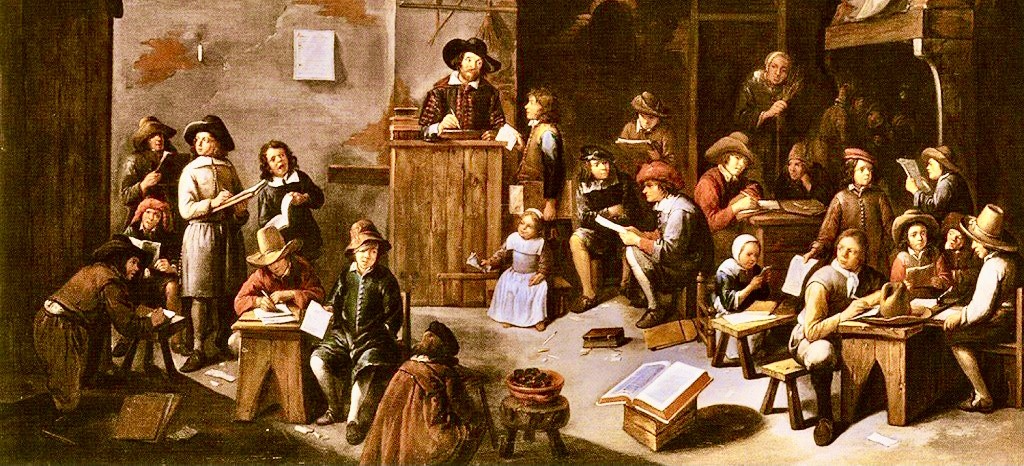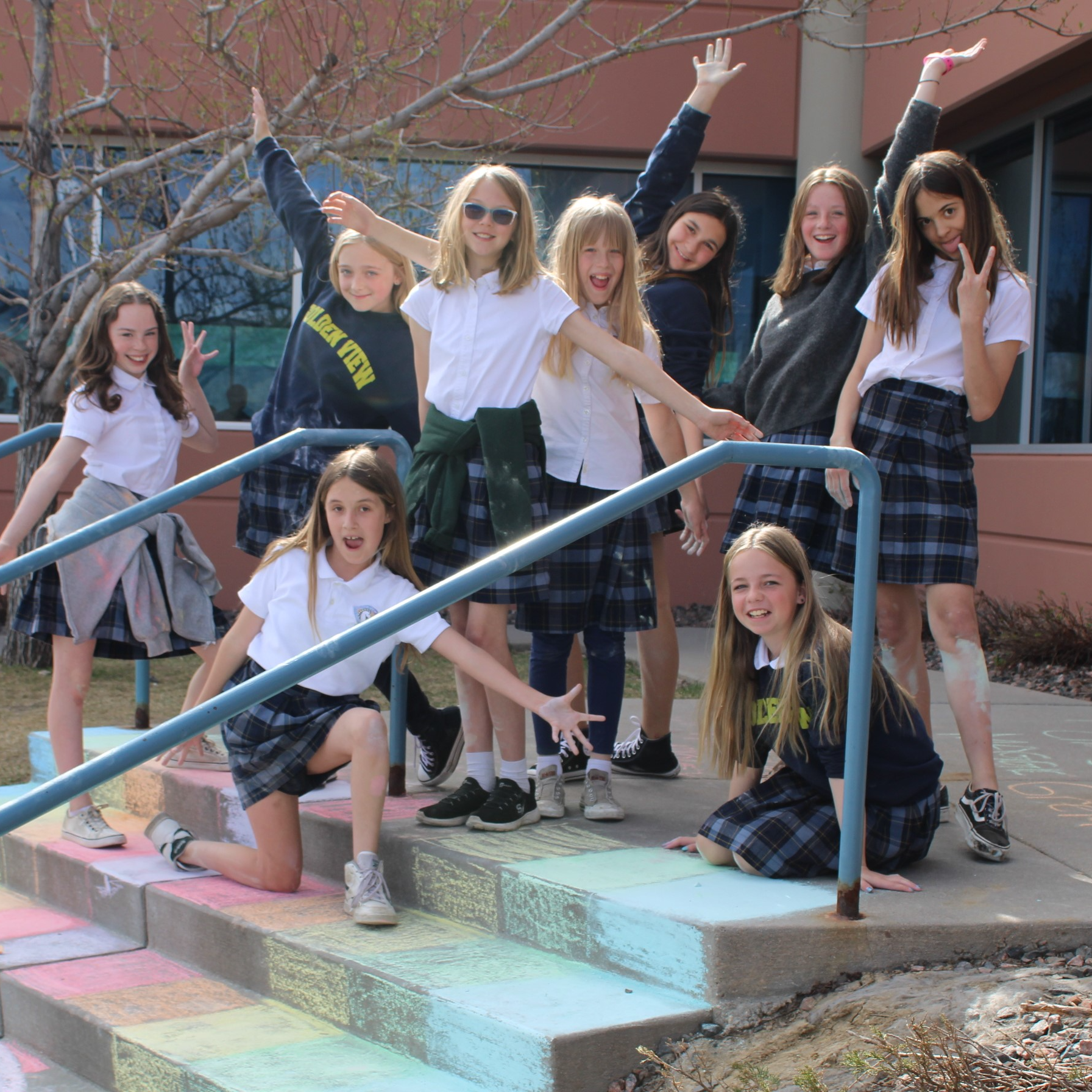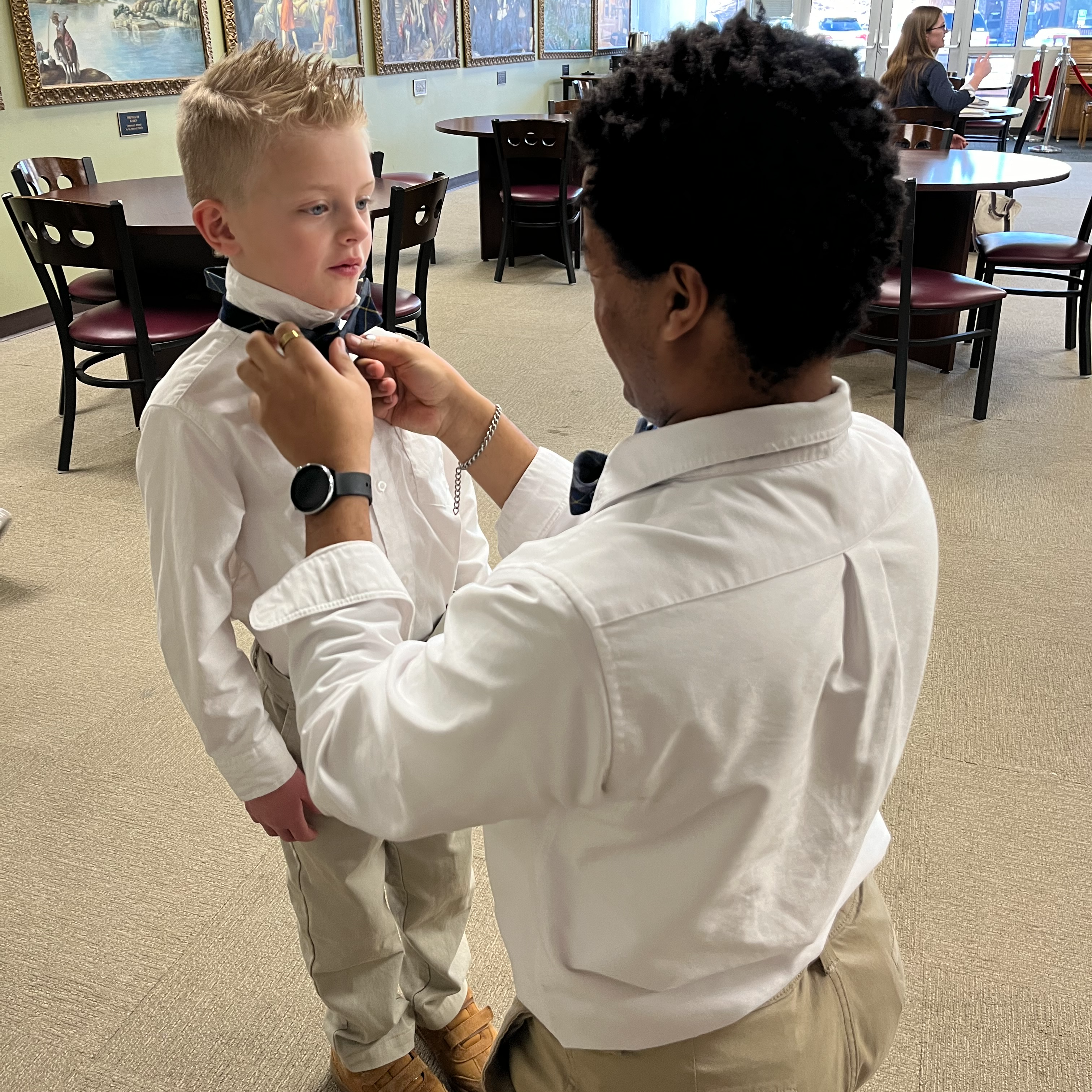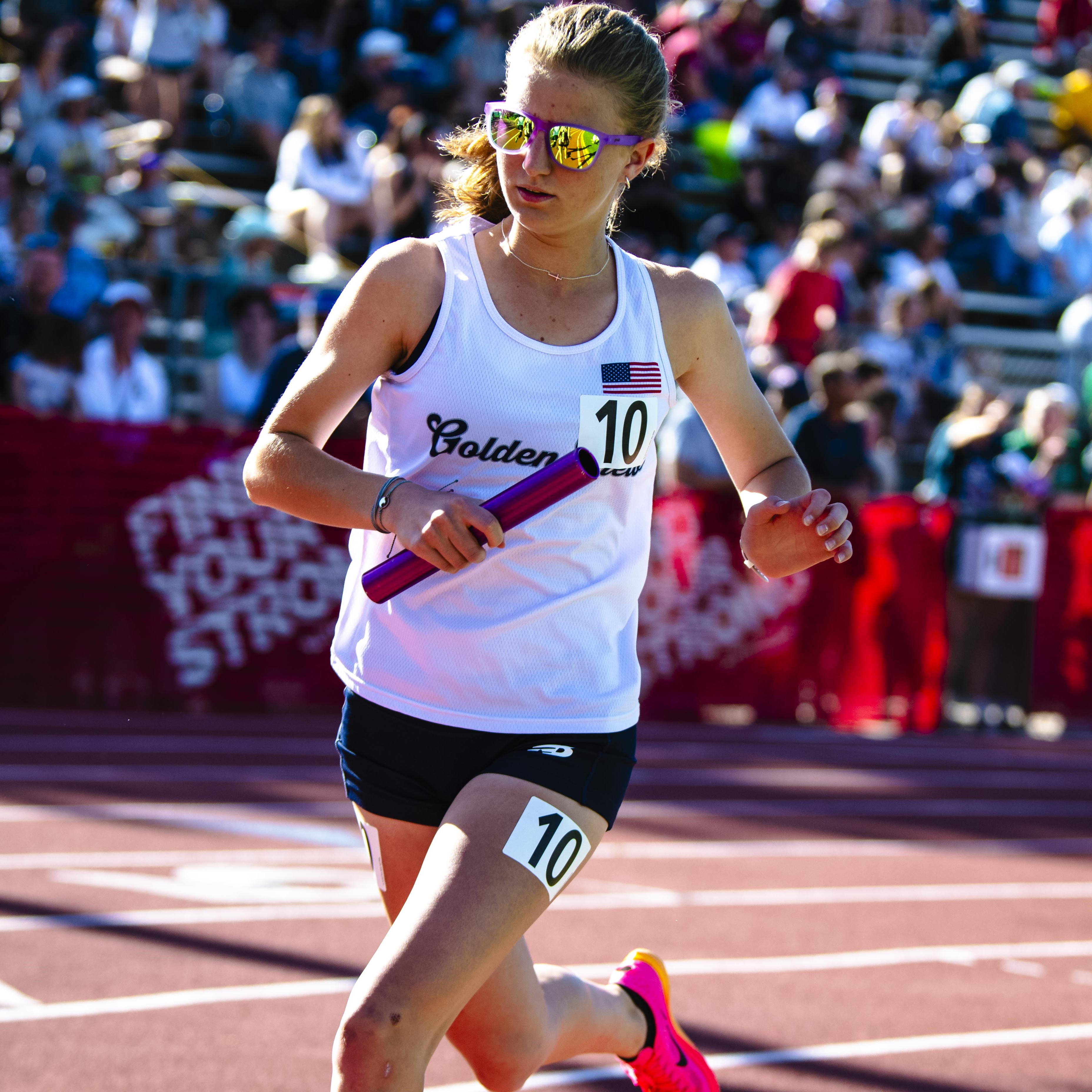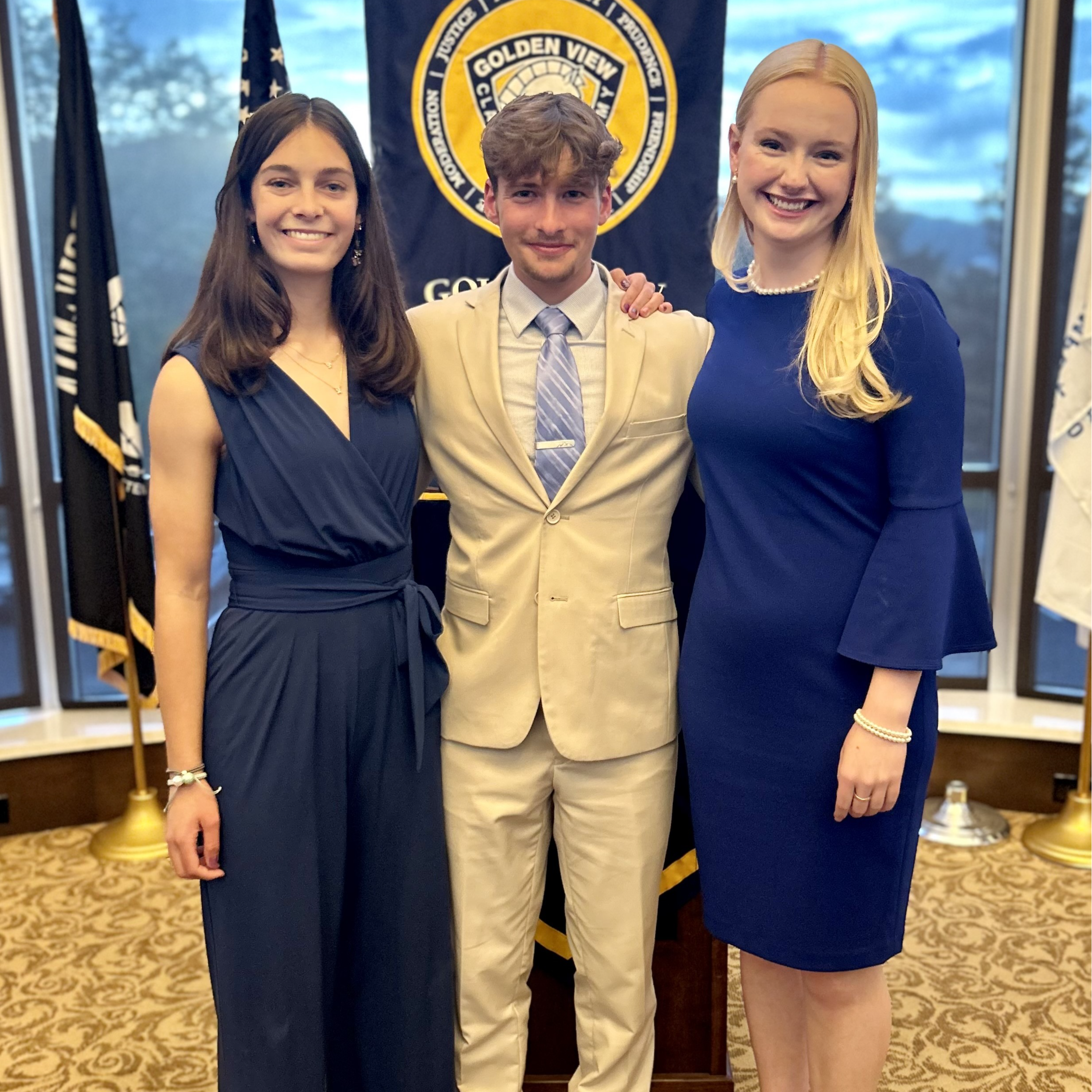May 2024
Dear Friend of Golden View Classical Academy,
A week ago, I had the opportunity and honor to deliver the Commencement Address at a sister school, Founders Classical Academy of Leander. FCA was the first classical school I worked at, and has a special place in my heart.
While all commencements are bittersweet, this particular one took place on an underlying note of tragedy, as one of the students who ought to have graduated passed away in the prior year. He was supposed to graduate and celebrate with his mother, and the absence of that moment weighed in the room. Still, it was a joyous occasion, and in that spirit I’d like to share my remarks.
______
It is an honor to be back at Founders. I think most of my ideas about how to work with students came from my time working with this community, and these students and their peers, when Ms. Loy taught 4th Grade, the current upper school building was a wide-open dirt space where we ran carline and got scolded by the fire department for causing a dust storm, the ultimate frisbee pitch was filled with muddy run-off, and at least some of these seniors sat in class with Mrs. Jenkins and Mrs. Baggett in a brand new school. It took courage for you all to take that first step in an unknown school and unknown people, and I’m grateful to have done it with you.
I have to tell you one of my favorite experiences here in 2014, and I think it’s fair as a frame for the rest of what I hope to share. There was a standard day, and I was in the then library at the front of the school trying to figure out what to do with a pile of books. In walks Dr. O’Toole, who had just returned from a class on the Ethics in which some student defended the life of gluttony, with the claim that the good life is as much Chick-fil-a as you could want all the time. We chatted about that and how fun it was to teach students great books and engage in serious moral reasoning. And in walks the kindergarten teacher, Mrs. Rariden. And holding her hand was a kindergartener named Guillermo. He was sopping wet and Mrs. Rariden looked at me, holding back her laughter, and said “he’s been drinking from the toilet again.” Again. So there were prior times apparently. To be clear that is not what I thought I’d be working on as Assistant Headmaster at the time, but I sat down with Guillermo to help draw a distinction between toilets and water fountains, and the first thing out of his mouth, before I said anything was “I couldn’t get any closer.” He really wanted me to know that he tried, like really tried, and he thought maybe I was disappointed not because he was drinking from the toilet but because he didn’t do it well enough. Worry not - he ended up turning it around and finished the year with an appropriate understanding of the difference between toilets and drinking fountains. Not a bad year’s work all things considered, and one of my favorite memories - I even still have the poor behavior slip. It’s a reminder that even you graduates, even me, did something when we were younger, that was…puzzling. It’s a reminder of what children are like, which is not a bad thing to remember as they begin their independent lives.
And here is where I’d like to commence.
Commencement means a beginning, but the kind of beginning that requires you to look back. After all, this is also clearly an ending, and in that it calls to mind for you and your families your shared past with an uncommon sharpness and power. There is simply no way to avoid the flood of memories that marked your common journey. We should commence, then, by calling to mind that this education, the culmination of which for the Class of 2024 has been completed and awaits only this ceremony for its final recognition, this education began somewhere and some time ago, with untied shoes, sometimes no shoes at all, sometimes mismatched shoes, sometimes only one shoe if recess was really great, lunchboxes not yet browned with layers of smushed bananas, crisp and untouched pencils that seemed to hold a new and exciting power, perhaps with the eraser chewed off just for fun, maybe some sopping wet hair from drinking water where you weren’t supposed to, and a hug from mom and dad that meant far more to them than it did to their children, a hug full of hope, of interest, of fear. And in that moment, in perhaps hazy outline, they saw today.
And now that they are here, they see in you, today, the spark they once saw on the playground or at the park, at the dinner table or as they tucked you in at night before you knew just how much that routine meant to them, and to you, and they see that that spark is now kindled into something still mysterious and unique. They are remembering your favorite song, the first time you drove a car on your own, the first time you didn’t come home when you said you would, and how thankful and relieved they were when you came back, and how mad they were at you for it. And in this moment looking back, all of those things somehow point to right now and come together, today.
Seniors, it is a journey that your parents have experienced in a different way from you, and over which they have a wide and comprehensive view, and before the day is up I hope you have an opportunity to express the kind of gratitude they deserve for their support and love. I’ll even venture to say that there may be one among you who might use this occasion to re-establish a relationship that has grown distant, and experience with your parents a moment of real recognition of you and your work, and their sacrifices, small and large.
Commencement is also a chance to look back on yourself. Here, now, you find yourself like every character in every book, in media res, in the middle of things, prepared (or not) to do what is next. And this is worth your reflection. Who have you turned out to be? Let me state that differently - who have you allowed yourself to become? Or maybe even more poignantly - why have you chosen to be the way you are, to the degree that such a choice is in your control? You don’t simply make yourself, but you do have a chance to place at the center of your soul some anchor that holds fast and deep, and the deeper it holds the less you sway and drift and float. Who you are, at this point, past kindergarten antics and the shenanigans of third grade, of which, should you remember, there were plenty, is either your fault or your achievement. Maybe it’s both simultaneously, because we all have our virtues and our vices, more or less explicit to our understanding depending on how honest we want be. As you look at yourself, maybe you think you see something clear, and maybe it’s a mess. But here is one thing that you are - you are the kind of person who can choose an education such as this, and stick with it, all the way to the end, through the thesis and defense and finals, no doubt with bumps and bruises, and sit here today with your teachers who have cared deeply for you and your education. The trite phrase “you did it!” should be said with a little more dignity - “you did this, and this was hard, and there were moments when you thought it was too hard,” and with this accomplished you are far more likely to succeed at the next hard thing. This is an anchor, a real fact, and it is confirmed when you walk across the stage and receive the diploma that you worked for, the kind that others your age do not work for.
So commencement is a beginning and requires you to look back, with the vision of your parents and the critical reflection of yourself. And as you sit here as a class, with each other, it is easy to see that it also requires you to look around. Like the good King in Hamilton, you must therefore ask yourself, “do you have a clue what comes next?” This can be an annoying question, because you may have no idea what comes next and you sense that the world around you expects you to know. But the more you discover about the world the more you realize how small is the tiny corner you inhabit, how complex and intractable the problems are, and how challenging it is to cut your way through on a path strewn with thorns. There is no shortage of things to be worried about, and it is not unreasonable to approach the theater opening before you with a good deal of anxiety. And he would be a fool who tells you don’t worry, be happy, and enjoy the moment. I guess I would, in this respect, recommend a little foolishness. The only way commencement can really be a beginning and not just a continuation of the flux of experience is if there is a pause, a gathering in and together, of the good will, the care, the gratitude, and above all the knowledge, that have made this education what it is, the kind of gathering that requires you to look around at the world and at your friends beside you, momentarily, truly, happy. That is what comes together as you cross the stage and shake Ms. Loy’s hand, what is shared when you throw your caps and when you hug your parents, and maybe if you’re lucky your grandparents and younger siblings, and when you hug each other, today. So don’t worry quite yet. There’s time enough for that. And be happy, before the next challenge calls you out of your comfort, as surely it will, probably when you least expect it.
And so let’s take a look at that. Commencement is a beginning, a looking back, a looking around, and also a looking up. It is an example of all beginnings, of how it is you can begin again, not every time with a ritual such as this, but the moment of pause, reflection, and gratitude back, and looking forward and up with something like hope for adventure and some confidence of success. And this brings me to the book that I’ve placed on your chairs. It’s one of my children’s favorites, and one of my favorites, and as it turns out, it’s about beginnings. For those of you who are wondering, it's called St. George and the Dragon. I don’t want to spoil it, so I’ll only draw your attention to a few things.
It’s about a knight who fights a dragon “grim and horrible.” When we first meet him, before his great battle, before he has earned his name, we see his vision is drawn up, he has a keen vision for what is highest. Off in the distance, firm in the clouds, he sees a beautiful and mighty castle, and wishes to go there. But he is told by a hermit, “not yet.” He is told you might see it up there, but you haven’t earned it yet. Unlike Odysseus, who I’ll come to, he could not say “Much have I seen and known.” So to get to that castle, to “follow knowledge like a sinking star, Beyond the utmost bound of human thought,” first he has to do a thing and live a life, engage in an adventure of some kind. He learns he must fight, will fall, and can choose to rise again, mightier each time for having undertaken the adventure itself. And even then, after all that, and after smiting the dragon, for him it’s still not time. Before you settle down you must keep the commitments you made and do the service you promised. At the foundation of who you are, as an anchor in your soul, are you the kind of person who accepts your responsibilities, and gratefully fills them? The anchor or the image at the foundation of your soul - it is there, whatever it is, and it is decisive for your way forward. And here’s the thing - it really is your choice what you place there, and the happier you will be the truer it is to the nature of things. Moving forward also requires looking up and looking down, deep into your soul, and not looking away.
Second, when the knight strikes the dragon, he strikes with “a blow so mighty that the dragon reared up like a hundred raging lions.” What does that mean? Well it means our knight has a backstory where he worked his tail off so that he could at least pretend that it wasn’t insane to step forward and confront the beast. You have to have some confidence to take the first step on the next trial and the trial has to be close enough to you that you don’t just wither and run away. And it takes him three times to finally win, and it’s each successive defeat that gives him new strength. How is that possible? How can losing make you win? If what doesn’t kill you only makes you stronger, what does that mean? Well, suppose it’s true - my sense is that it requires something - some awareness that you almost had it, that you are almost strong enough, that you’ve taken care to prepare for battles, and here’s the key - a sense of what is highest and deepest (which are the same thing) that anchors you, that gives you a reason to get back up again. I am aware that your class has confronted some real tragedy, and I’d venture to say that this isn’t the last time you will. And when you do, remember that what hasn’t killed you has given you a chance, a chance to be stronger, to prepare again, to recalibrate how you act and what you say, based on what is highest. It is a chance to begin again, to commence.
Looking back, looking around, and looking up, all of these viewpoints make a commencement of any kind what it is, and without them you can’t really say that you are beginning anything of deep significance. Without them you’re just drifting through. And here I’d like to come to a story I think you know well, or at least one that you have encountered while at Founders Classical Academy, the story of the great Odysseus. He begins, like you and everyone, in the middle of things, with a choice of staying as a god on an island of abundance with a beautiful goddess who loves him, or to weather another of Poseidon’s storms and take a last adventure home to his land and his wife and his son. It is the choice between effortless abundance and physical satisfaction, and the unnerving, dangerous, wide open sea where it even seems like the gods or life itself are against him. We know what choice he made, but he didn’t need to. He could’ve stayed and lived the life of a large child rather than a man. But then we probably wouldn’t have a book about him because such a choice would be a disappointment, and entirely expected. He takes the plunge, and soon finds himself bloated and salty and exhausted, naked on the shores of an island full of spirited men.
He spends some time on that island but is quickly spirited home with the blessings of his gods. Why is it that he was allowed to go home at long last? What is it that made that moment so special, so important, a precipice? Well, it had all the elements of a new beginning, of rising again to fight a new dragon like St. George. That is, he sang the song of the hardships and joys of his voyage, accounted for the world around him and his own cunning and skill, and sought out the gods for help and explanation. He looked back, around, and up.
You know the rest, where Odysseus commences the second half of his tale and ultimately destroys the suitors and finds his wife and home. Athena holds back the dawn for them and time slows down, until he tells her he has one more voyage to undertake, to a land where Poseidon is unknown. He is ready to begin again.
And here I’d like to end, as you are on the precipice of what comes next for you, here with your parents and friends and teachers, your teachers, whom I have not recognized and thanked nearly enough, with the confidence of your own accomplishment, and hopefully some sense of trepidation. And, I would add, a unique education which, if you took advantage of it to its fullest and drank it to its lees, gave you all that you might need to plunge ahead, knowing full well that you’ll be battered and salty by the end of it.
If I were to leave you with something, it would not be don’t drink from toilets, sage advice though that is. It would be to remember that in you there was once that child who made a puzzling choice, who didn’t know what to do. And, here and now, you might not know what to do and you might make another puzzling choice, with more serious consequences. But remember your work, this work, this accomplishment that commencement celebrates for you, and which has the power to affirm in the foundation of your soul the spirit of Odysseus and St. George. That strength which in all days moves earth and heaven, the spirit that says, against all the dragons grim and horrible, let us begin again, because we already know how to do it, to strive, to seek to find, and not to yield.
Thank you.
Sincerely,
Dr. Garrow
Principal, Golden View Classical Academy

